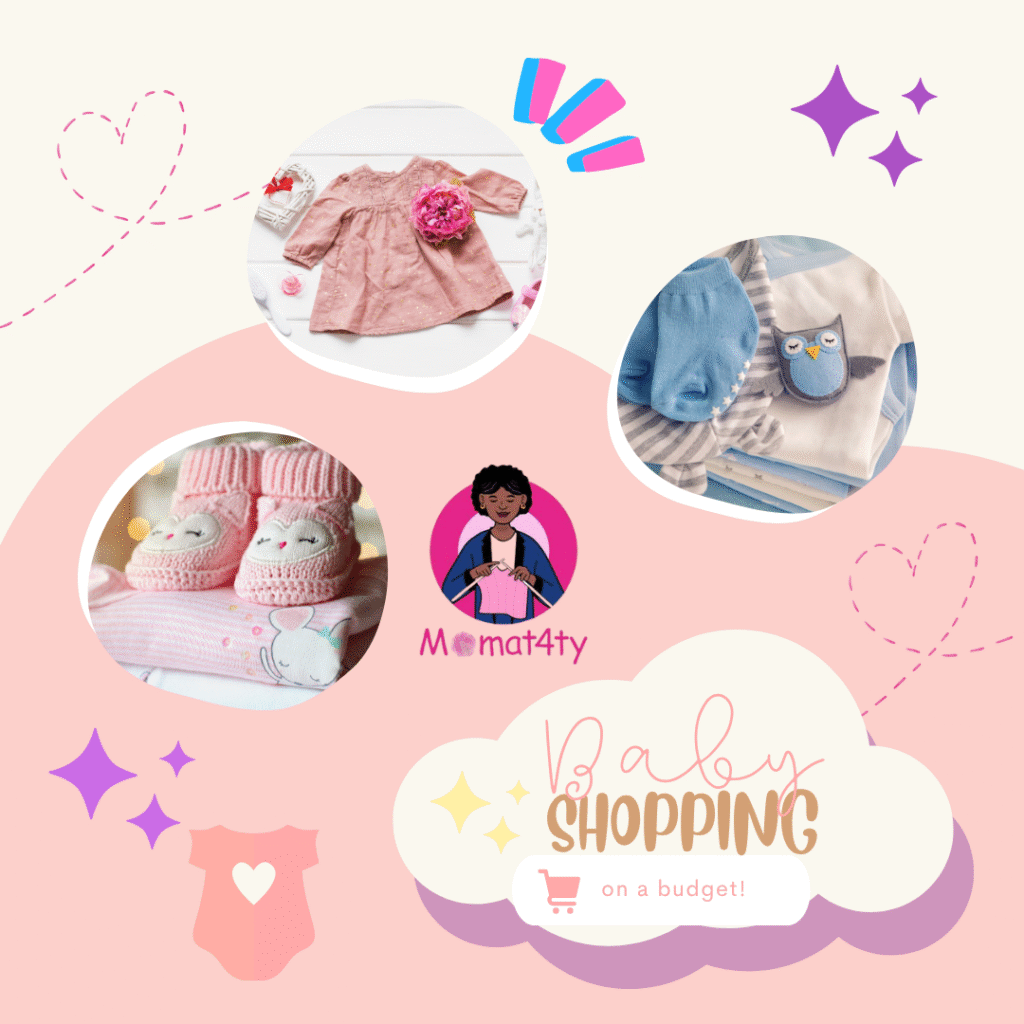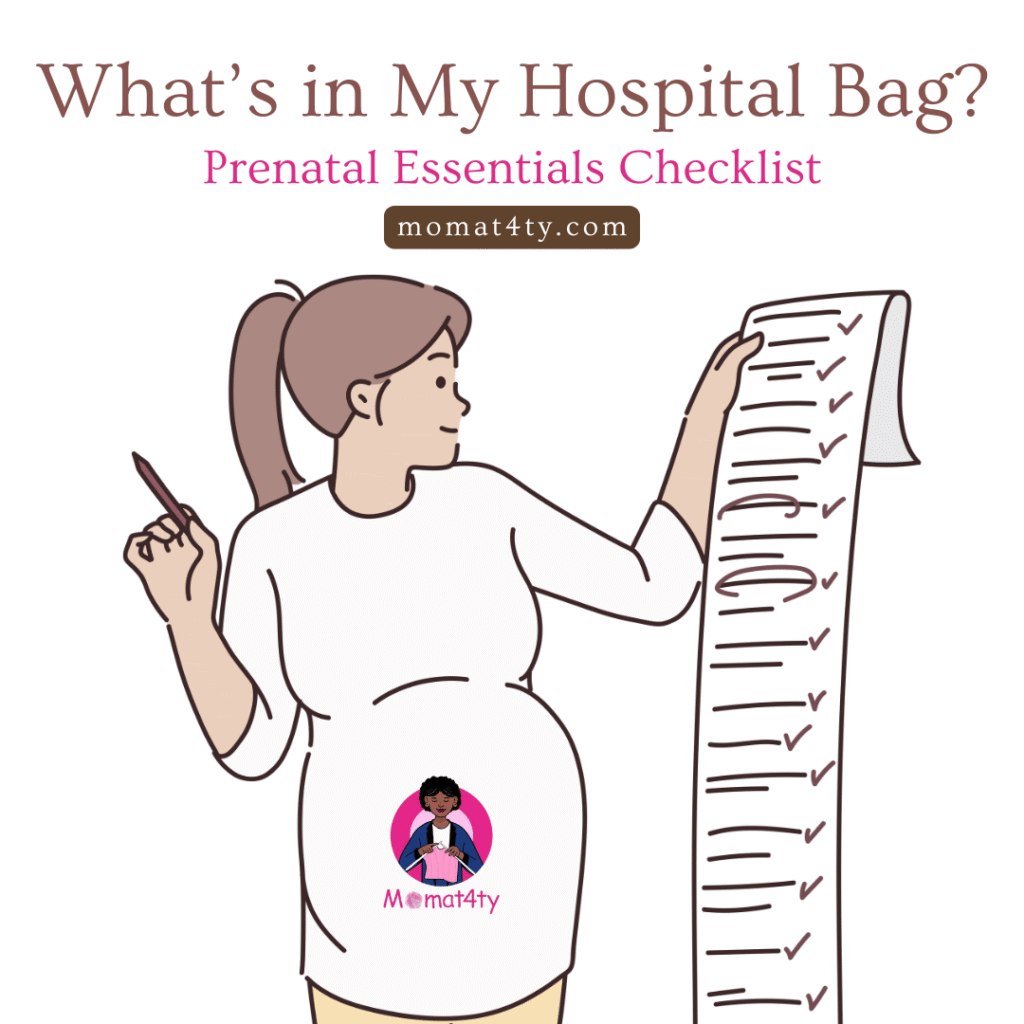Shop Smart, Not Hard: Your Budget-Friendly Baby Essentials Guide
Welcome, expecting moms!
As you journey through this beautiful period of anticipation, your mind is likely bustling with thoughts of the little one soon to arrive. Among the many preparations, shopping for your baby’s essentials can feel overwhelming, especially with so many adorable things calling your name. But fear not, because bringing a new life into the world doesn’t have to break the bank. With a little wisdom and smart planning, you can provide everything your baby needs without straining your purse!
In today’s economy, with the ups and downs of T-pain, expecting a baby might be worrisome, but the trick is to start shopping early. Put aside a monthly budget and begin the shopping from the moment you find out.
Here’s how you can make your naira stretch further:
- Prioritize the True Essentials: Before you get carried away by cute outfits and gadgets, make a list of what your baby truly needs in the first few months. Think about feeding (whether breastfeeding or formula, you’ll need bottles and sterilising equipment), sleeping (a safe cot/cradle, mattress, and bedding), changing (diapers, wipes, changing mat, rash cream), and a few comfortable, breathable outfits suitable for our climate. Resist the urge to buy too many newborn clothes; babies grow incredibly fast!
- Borrow or Buy Pre-Loved: Many items, like baby carriers, certain baby clothes (especially for the first few weeks), and even some cots, can be borrowed from friends or family who no longer need them. Consider joining online communities or local groups where mothers sell or give away good-as-new used baby items. Just ensure they are clean, safe, and meet current safety standards. However, it is often recommended to buy car seats new for safety reasons.
- Invest in Multi-Purpose Items: Look for items that serve more than one purpose. A changing mat that can be placed on a dresser rather than a dedicated changing table, or a baby bath that can fit into your regular bathtub, can save space and money.
- Bulk Buy Wisely: For consumables like diapers and wipes, buying in bulk can often lead to savings. However, be cautious not to overstock on newborn sizes, as your baby might quickly outgrow them.
- Local Markets are Your Friend: Our local markets are a treasure trove for affordable baby items, especially clothing, traditional baby wrappers, and local baby care products. You can often negotiate for better prices too!
- DIY and Homemade: For items like burp cloths or blankets, you might consider using soft, clean fabrics you already have at home. Simple baby toys can also be fashioned from safe, everyday materials. There are some interesting YouTube channels that teaches how to make some.

Packing Your Hospital Bag: Essential Things
As an older mom, whether planned or unexpected, a C-section often means a slightly longer hospital stay, so packing wisely is key. Here’s a comprehensive list to consider for yourself and your precious little one:
For Mom:
- Comfortable, Loose-Fitting Clothes: Think nightgowns or wrapper sets that are easy to put on and take off, and won’t rub against your incision. Dark colours are often preferred to hide any stains.
- High-Waisted Underwear: Crucial for comfort over your incision. Opt for soft cotton and avoid anything that sits on the incision line.
- Maternity Pads: You will experience bleeding after delivery, regardless of C-section or vaginal birth. Pack several super-absorbent pads.
- Nursing Bras and Breast Pads: If you plan to breastfeed, these are a must. Breast pads will help manage any leakage.
- Toiletries: Your toothbrush, toothpaste, soap, shampoo, hairbrush, lip balm, and moisturiser. Hospitals can be dry!
- Slippers and Flip-flops: Slippers for walking around the ward and flip-flops for showering. Easy slip-on is best, as bending can be uncomfortable.
- Phone and Extra Long Charger: To keep in touch with loved ones and capture those first precious moments.
- Snacks and Drinks: While you’ll be monitored closely after surgery, having some light, high-fibre snacks and plenty of water once you’re allowed to eat can be very helpful for recovery and to prevent constipation. Peppermint tea bags can also be good for trapped wind post-surgery.
- Pillow (Optional): Your own pillow from home can provide extra comfort and a sense of familiarity. A small pillow to hold against your incision when coughing or laughing can also be a lifesaver.
- Something to keep you occupied: A book, magazine, or downloaded podcasts/music can help pass the time during your recovery or simply just reading our blogs. winkwink

For Baby:
- A Few Outfits: Think soft, breathable bodysuits, singlets, and sleepsuits (especially in lightweight cotton during dry weather). Pack a going-home outfit that’s easy to put on.
- Hats and Mittens: A light hat to help regulate their temperature and mittens to prevent scratches.
- Newborn Diapers and Wipes: While the hospital may provide some, having your own supply is always a good idea. Opt for fragrance-free wipes.
- Baby Blanket/Shawl: For swaddling and keeping them warm, especially for the journey home.
- Car Seat: Absolutely essential for taking your baby home safely from the hospital. Ensure it’s properly installed in your car before the due date if none, then your arms are safe and warm enough.
Remember, motherhood is a journey of learning, adapting, and growing. Don’t be afraid to ask for advice from experienced mothers around you. Wishing you a smooth delivery and a joyful start to this new chapter!

